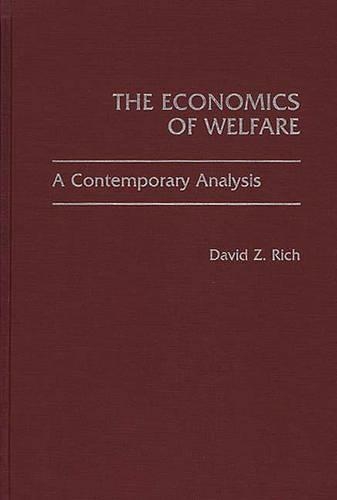
The Economics of Welfare: A Contemporary Analysis
(Hardback)
Publishing Details
The Economics of Welfare: A Contemporary Analysis
By (Author) David Rich
Bloomsbury Publishing PLC
Praeger Publishers Inc
8th December 1989
United States
Classifications
Tertiary Education
Non Fiction
Welfare and benefit systems
338.47361
Physical Properties
Hardback
212
Description
Rich examines current and historical, theoretical and practical notions of welfare economics. Through a discussion of the theories of Edgeworth, Pareto and Slutsky, the author analyzes how the present approach to welfare economics developed and how it has failed in significant ways to alleviate the problems of poverty and unemployment. Rich then develops a new theory of welfare economics based on the concept of dynamic disequilibrium and designed to respond to present-day economic and social realities. Divided into four parts, the volume begins by redefining the problem of welfare economics. In contrast to those who see the problem as simply the redistribution of income, Rich argues that the challenge today is to use our present economic system to absorb welfare recipients and make them productive members of the economy. He argues further that current approaches to the welfare situation are Keynesian and therefore relevant to different era - that of the Great Depression. In subsequent chapters, Rich develops his theory of contemporary welfare economics utilizing a welfare utility function and incorporating the components of government, industry and labour. Designed to make the economy more efficient without the redistribution of income, Rich's proposals include making welfare payments contingent upon training and applying training to the needs of the business sector. Only by employing a theory more rooted in contemporary realities, Rich argues, can we ultimately remove the heavy burden of welfare so detrimental to large segments of society.
Author Bio
DAVID Z. RICH is Research Assistant in Economics at Tel Aviv University. His previous works include The Dynamics of Knowledge (Greenwood, 1988) and Contemporary Economics (Praeger, 1986).
